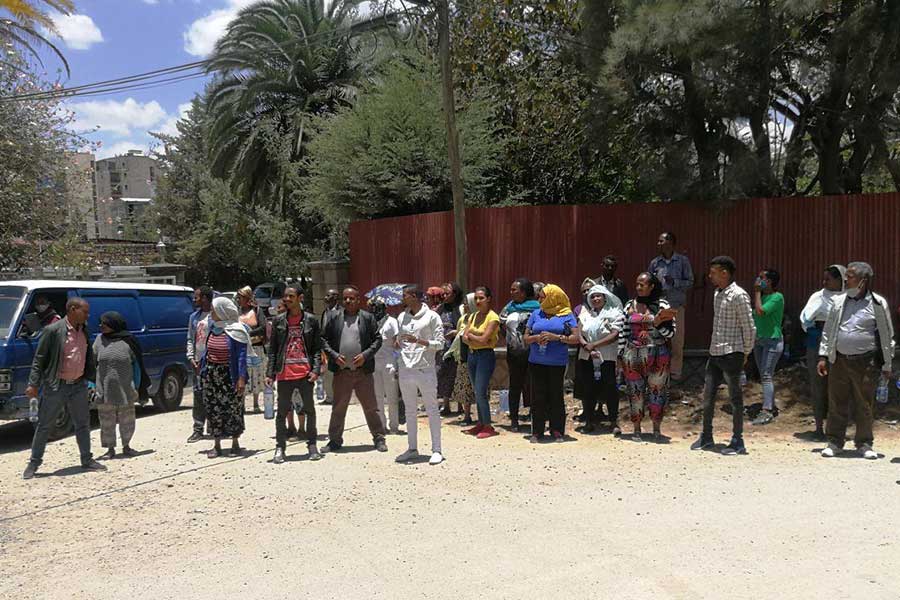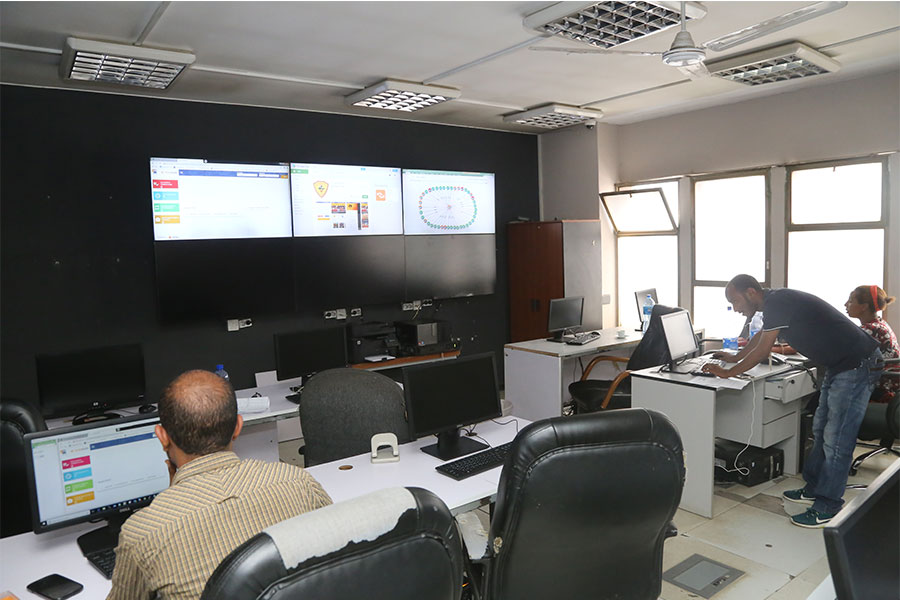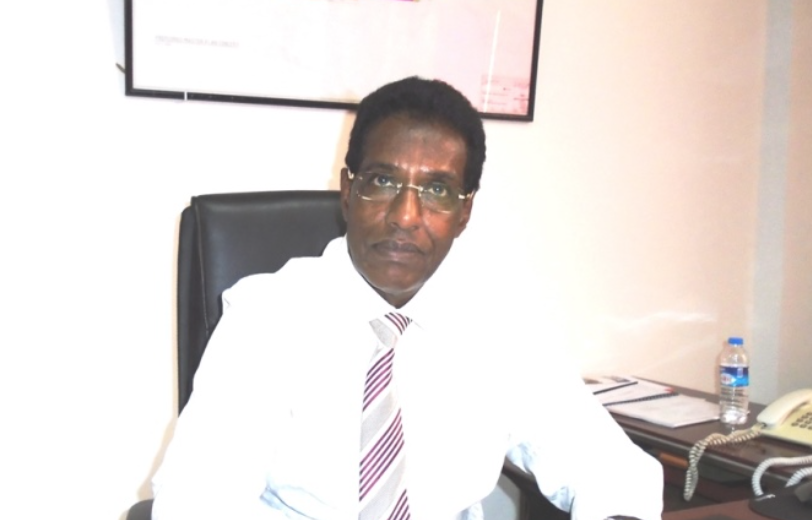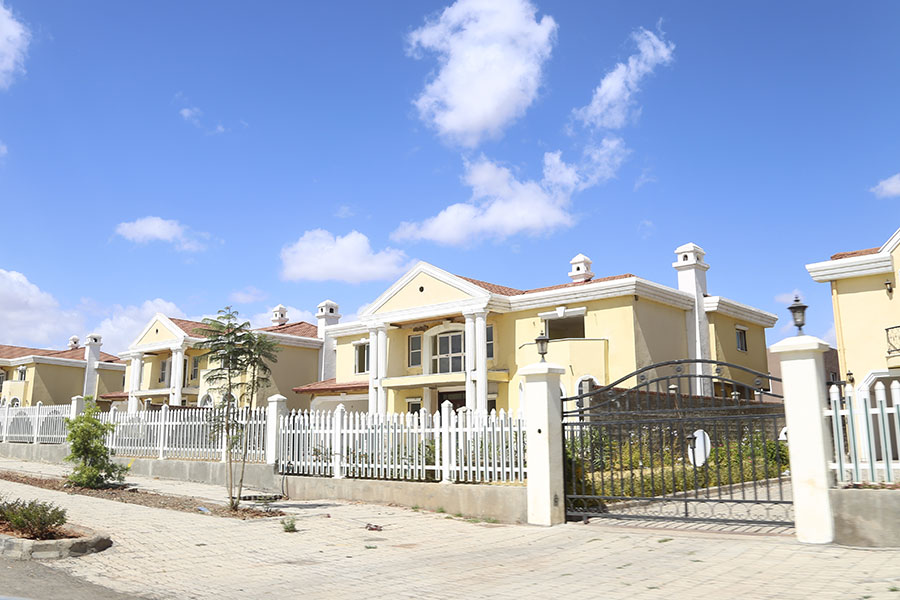
Fortune News | Aug 08,2020
Fortune: What principles and guidelines does the Paris Club follow when dealing with debt relief for long-term and debt-burdened developing countries like Ethiopia?
William Roos: It is an informal group of official creditors of rich countries from OECD and others such as Brazil. South Africa is a prospective member; it should become a full member soon. The idea of the Paris Club is based on the experience of more than 40 years. When a country faces difficulties in paying its debt, it is better to urge the official creditors to work together cooperatively. We are committed to negotiating with the debtor country in a coordinated manner. We also want the debt treatment to be sustainable. We have learned from the past that it is essential to have an independent reference, such as an assessment from the IMF and the World Bank, on the magnitude of the need for the treatment.
Fortune: The IMF staff team has been discussing with Ethiopia's authorities; there were meetings in Addis Abeba and Washington DC over the past few weeks. What's your take on these meetings?
We started working with Ethiopia two years ago when it applied for the treatment of its external debt. There was also a common framework two years ago for liquidity issues. It was not possible to move much due to several reasons. We see now that things are moving and are very happy. It is a prerequisite for Ethiopia to agree with the IMF on the macroeconomic outlook, the deficits and public deficit targets. We are waiting for Ethiopia to reach a final agreement with the IMF.
Fortune: The developing countries burdened with many debts have endured the pandemic since 2019. There are criticisms placed on international creditors in general, but mainly on Paris Club, that you have not responded sufficiently in time to help out these countries. Can you explain?
The diversity of shocks from the Russian war against Ukraine and the consequences on the oil prices brought food insecurity. We launched the debt service initiative to address urgent liquidity issues. But we indeed needed the structural approach to support these countries. The criticism that the process we have today is prolonged is valid. I have worked on the case of Chad and Zambia. We have finalized an agreement on the debt treatment for Chad, which gives it the leverage to negotiate with its biggest private creditors.
I believe low-income countries are right because they would like the process to have more certainty, clarity, and a timeline to move on to the treatment process. France, many of our members, the IMF, and the World Bank want to improve the instruments that provide zero-interest rate financing. Our President [Emmanuel Marcon] has proposed to organize a summit in June [2023] to recognize unmet expectations and to discuss collectively how to continue improving the international financial architecture.
Fortune: Of the three African countries - Chad, Zambia and Ethiopia - the two countries are still lagging far behind despite all the initiatives, pressure and goodwill from creditors. What do you think are the main obstacles Zambia and Ethiopia faced?
We have some G-20 creditors with quite a long internal process. We want to move faster to be clear. We need some creditors to be more efficient in their internal process to deliver the treatment promptly. We have pushed for an indicative timeline; we are producing a manual to explain to the top countries how it works. But there was no consensus at the G-20 level for these. We are trying to improve the consensus among the official creditors. The IMF and the World Bank have launched a global sovereign debt roundtable to complement the other fora.
Fortune: The talks between the IMF and Ethiopia do not seem to move as fast as the situation requires. Does the Paris Club have any different initiatives that will support and complement it?
It was a question you raised earlier. We have a principle. We want the country to reach an agreement with the IMF. And we do not want to interfere. Of course, we support it; my colleagues and I were in Washington, DC, last week for the Spring Meeting. And we collectively sent a message of support that we look forward to the talks' conclusion between Ethiopia and the IMF; to resuming the work of the official creditors' committee.
Fortune: During your stay here, you spoke with several Ethiopian officials, including the Minister of Finance, Ahmed Shedie. There appears to be a difference of opinion about Ethiopia's debt situation. Some believe it is insolvent. Some officials are convinced that Ethiopia is in a short-term liquidity problem. What is your assessment?
Two years ago, it was a liquidity issue. There will be a need to reduce the debt service during the first years of an IMF program. Today, to be honest, I do not know. We work based on the IMF and the World Bank debt sustainability analysis. My understanding, and based on the discussion we had in Washington, DC, last week, is that the situation has deteriorated from what it was two years ago. However, I do not think the debt level is Ethiopia's most significant issue. The debt service is probably the main problem. But we need to look at the debt sustainability analysis to check whether it can be addressed with light or a more profound treatment. At this stage, we are unaware.
Fortune: China is one of the largest bilateral creditors to Ethiopia. And your country is a co-chair with China on this. China needs to provide political goodwill. As a member of the Paris Club, do you see yourself coordinating Ethiopia's creditors far beyond the Paris Club circuit?
We can draw some lessons from what we did with China, Saudi Arabia and India for Chad, and we have worked for Zambia. The working relationship between the experts in Beijing and Paris has increased dramatically. On the technical side, we understand that the level varies. We are not organized in the same manner. We do not have the same domestic architecture. And we have to respect the domestic procedure of each creditor. I think China should work on the internal process to be quicker. It is new for China, India and Saudi Arabia to deliver the treatment in coordination with the over creditors, notably Paris Club members. And it is also new to be constrained by the parameters of the IMF program. But in the end, there is a message from many African countries: it has to be delivered in a timely manner. And today, it is not the case.
Fortune: Considering how long the talk between the IMF and the Ethiopian government is taking, and it will probably take much longer than expected, do you feel Ethiopia is faced with the risk of default?
I have learned from the discussion last week - and today with Ethiopian authorities - that they are close to an agreement [with the IMF]. I do not want to interfere, but I think finding common ground was not impossible. There is a clear commitment from both sides. I do not believe that it could be a failure.
Fortune: Allow me to rephrase the question. One of the contentious issues is exchange rate liberalization. Do you think they will find common ground on this?
When the IMF provides financing, the objective is to see a restored balance of payments at the end of a program period. And part of the way to solve a balance of payments issue is to address the shortage of foreign currencies in one way or another. You may have different models. One of the IMF principles is avoiding exchange rate multiplicity. To ensure smooth payments of the trade flows, some countries may have capital control, and others do not. But the exchange rate discussion is very common in every IMF program discussion.
Fortune: what would be your message to Ethiopian authorities?
Count on France and the Paris Club creditors to coordinate with China and the other creditors. China is also very clear that it wants to deliver for Ethiopia; so are Paris Club members and the G-20 members. So my message is an encouragement to finalize the discussion with the IMF. We will do what we must to unlock the IMF program.
PUBLISHED ON
Apr 22,2023 [ VOL
24 , NO
1199]

Fortune News | Aug 08,2020

Radar | Oct 03,2020

Fortune News | Apr 12,2020

Fortune News | Mar 02,2019

Fortune News | Oct 10,2019

Fortune News | Apr 20,2019

Radar | Jun 08,2019

Commentaries | Feb 03,2024

Radar | Jul 18,2020

Viewpoints | Sep 24,2022

Dec 22 , 2024 . By TIZITA SHEWAFERAW
Charged with transforming colossal state-owned enterprises into modern and competitiv...

Aug 18 , 2024 . By AKSAH ITALO
Although predictable Yonas Zerihun's job in the ride-hailing service is not immune to...

Jul 28 , 2024 . By TIZITA SHEWAFERAW
Unhabitual, perhaps too many, Samuel Gebreyohannes, 38, used to occasionally enjoy a couple of beers at breakfast. However, he recently swit...

Jul 13 , 2024 . By AKSAH ITALO
Investors who rely on tractors, trucks, and field vehicles for commuting, transporting commodities, and f...

Jun 28 , 2025
Meseret Damtie, the assertive auditor general, has never been shy about naming names...

Jun 21 , 2025
A well-worn adage says, “Budget is not destiny, but it is direction.” Examining t...

Jun 14 , 2025
Yet again, the Horn of Africa is bracing for trouble. A region already frayed by wars...

Jun 7 , 2025
Few promises shine brighter in Addis Abeba than the pledge of a roof for every family...